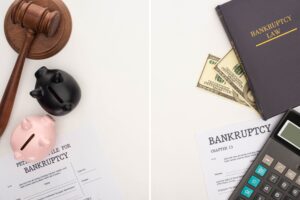How Do You Know Which Type of Bankruptcy to File?
by Luke Homen
There are several types of bankruptcy protections in the chapters of US bankruptcy law. They apply to different situations and parties. To get the most benefit from filing for bankruptcy, choose the one that best fits you, your family, or your business.
Can the right bankruptcy help you get better control of your finances? The team at Convenient Bankruptcy can help you explore your options. Call us at 405-296-0067 or fill out our online contact form, and our Oklahoma City bankruptcy attorneys will contact you.
What is Bankruptcy?
Bankruptcy is a legal process created by federal statutes that allows you or your business to declare that you can’t pay the debts you owe. Bankruptcy may mean you’ll discharge your debts entirely, or you’ll pay them over time.
Why is Choosing the Right Type Important?
Bankruptcy chapters cover different parties and how their financial problems can be addressed. There are also varying qualifications concerning income and debt levels. Bankruptcy chapters concern individuals, companies, organizations, government entities, farmers, and fishermen. Assets may be sold off to pay the debts, or a debtor may keep their assets and make payments over time.
What are the Different Types of Bankruptcy?
There are 6 different types of bankruptcy. The most common are Chapter 7 and Chapter 13:
- Chapter 7: Traditional bankruptcy, where eligible debts are “discharged” – ending your legal obligation to pay them, and preventing your creditors from ever collecting on the debt again. Debts not included in the discharge are secured debts that you’re keeping (your car loan and mortgage), child support, alimony, and some tax debt. In order to qualify for a Chapter 7, you can’t be a high earning individual. You also risk losing luxury items that you may own, if they are not considered necessary for your fresh start.
- Chapter 9: This bankruptcy chapter is for municipalities, such as the City of Detroit. It is the least common chapter of bankruptcy.
- Chapter 11: This chapter is for large businesses and organizations, such as General Motors or Chesapeake Energy. It is substantially more complicated and expensive than any other Chapter. It’s also used for high-earning individuals who don’t qualify for Chapter 7 or 13, like Rudy Giuliani.
- Chapter 11, Subchapter V: This is designed for small businesses. It’s similar to a traditional Chapter 11, but involves a specialized bankruptcy trustee who assists in the process.
- Chapter 12: This type of bankruptcy covers family farms and fishermen in significant financial distress. It allows the debtors to keep work-related assets while discharging their debts. Only a couple Chapter 12 bankruptcies are filed each year in the entire state of Oklahoma.
- Chapter 13: An individual’s debts are reorganized, and the debtor pays their obligations over three to five years in a monthly Plan Payment. Debtors are often able to keep property that they might otherwise lose in a Chapter 7, such as a boat, fancy car, or second home. Chapter 13 is commonly used by higher earning individuals, as well as individuals who wish to stop a foreclosure and save their home.
Debtors may start using one chapter and finish the process using another.
How Do I Choose Which One to Use?
Chapters are limited to parties who meet specific qualifications. In addition, you also must assess:
- Your financial situation by evaluating your total debt, assets, and income
- The stability of your income and your ability to pay your obligations over time
- Whether you need immediate relief or long-term financial stability
- Which debts are a priority for you to pay
- Whether you want to preserve some assets like home or business ownership
- Whether your financial future, like rebuilding your credit, is a priority
Before choosing which chapter to use, you must consider many factors, including whether you qualify for a certain bankruptcy and if it matches your long-term goals.
Why Should I Discuss Bankruptcy With a Lawyer?
There are several reasons why you should contact and retain Convenient Bankruptcy if you or your business are in severe financial distress, including:
- Bankruptcy law is complex, and we can explain the different chapters, their qualifications, and their pros and cons in detail. We can help you decide which chapter is best suited to you and your needs
- No matter which direction you go, we can ensure you get the most out of bankruptcy by potentially shielding some assets and effectively navigating the bankruptcy process to discharge as many debts as possible
- Convenient Bankruptcy can guide you through the paperwork, ensure everything is filed correctly, and represent you in court when it’s necessary, preventing costly and time-consuming errors you would likely make. You can delegate the bankruptcy process so you can enjoy peace of mind and focus on living your life
While discussing your situation, you may learn that bankruptcy may not be your best choice. We can negotiate with your creditors to lower your debts so repayment becomes a practical option.
Retaining a bankruptcy attorney to negotiate for you can give you more credibility, and creditors may take you more seriously. They may not want you to declare bankruptcy, so they may be very flexible in preventing that.
Consultation With Bankruptcy Attorney
If you or your business are having financial difficulty and bankruptcy might be an option, set up a consultation with a Convenient Bankruptcy attorney. We can discuss your situation, your priorities, and your best options.
This is an area of the law where a DIY approach can result in severe financial losses. There is much at stake in bankruptcy, and it’s worth consulting with a bankruptcy lawyer. Schedule a consultation with the Convenient Bankruptcy team by contacting us online or calling us at 405-296-0067 to set up a time to talk.

Attorney Luke Homen is the President of Convenient Bankruptcy. He placed great value on helping individuals and families solve their financial challenges and achieve real financial freedom. His goal is to find a customized solution that fits each client’s unique situation. Luke has been practicing law since 2008, and was voted “Best Bankruptcy Attorney in Oklahoma” by The Oklahoman in the Reader’s Choice Awards.

